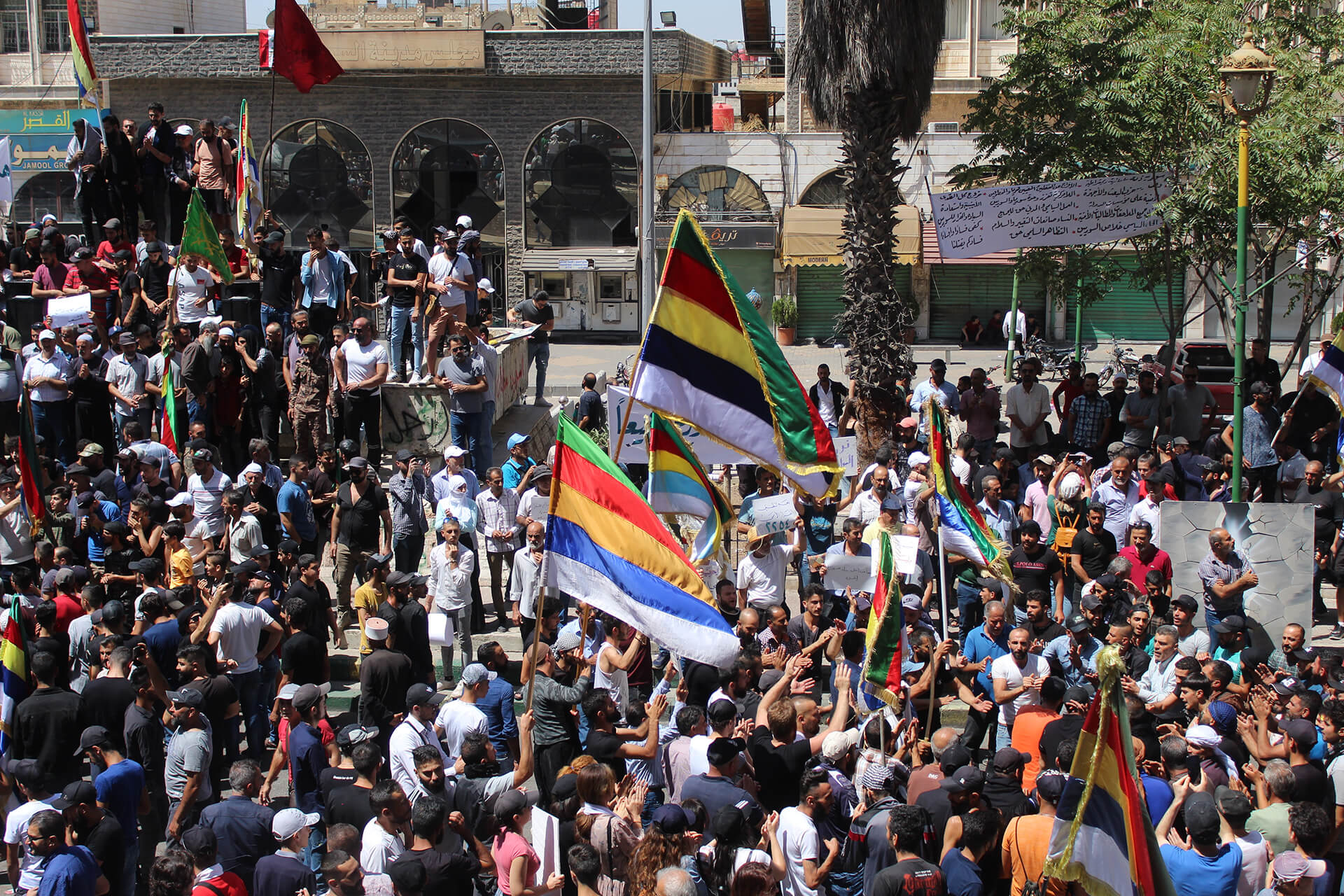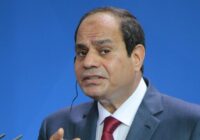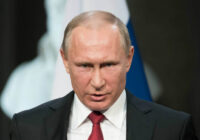Protesters in Syria, Bahrain, Libya, Iran and Israel are dashing autocratic and authoritarian hopes of a prolonged winter.
In response, Arab autocrats are scrambling to squash what they fear could evolve into a third wave of protests in little more than a decade. The autocrats have deployed tools ranging from cracking down on street protests to increased repression to engaging in perfunctory dialogue. They’ve made concessions and economic aid to defuse exploding and potential future powder kegs.
The third wave of protests since the Arab Spring
The latest protests erupted after street agitation across the Middle East bookended the last decade.
In the early 2010s, the United Arab Emirates (UAE), Saudi Arabia and Egypt relied on security force violence, military interventions and support for conservatives and rebel militias to roll back the achievements of the 2011 popular revolts that toppled the long-standing autocratic leaders of Tunisia, Egypt, Libya and Yemen.
Uprisings erupted again in 2019 and 2020 in Algeria, Iraq, Lebanon and Sudan. A combination of autocratic political maneuvering and the Covid pandemic defanged them, often with devastating consequences.
Analysts, journalists and academics argued that counterrevolutionary measures had replaced the 2011 Arab Spring with a prolonged Arab Winter. The latest protests, however, suggest the winter’s snow may be melting.
This month, Iran braces for the September 16 first anniversary of Masha Amini’s death. Amini died under suspicious circumstances in the custody of Iran’s religious police, who detained her for allegedly wearing her headscarf loosely. Amini’s death sparked months of street protests in which security forces killed 530 people and arrested more than 22,000. Since then, popular defiance has turned businesses, cultural events, courthouses and religious ceremonies into protest and civil disobedience venues. “Wrong decisions may have painful consequences for the establishment. People cannot take more pressure. If it continues, we will witness street protests again,” a former government official warned.
Syria has seen almost two weeks of sustained mass anti-government protests in the Druze-populated southwest province of Suwayda, long a pro-government stronghold. The demands for the fall of President Bashar al-Assad are resonating in the neighboring Sunni region of Daraa and even Assad’s Alawite stronghold of Latakia. “Initially, Assad probably thought, ‘I have won and we can let this happen; we can let the Druze let off some steam.’ It turned out to be a mistake from the Assad point of view, and Assad’s military will have to keep him in power,” said Syria expert Joshua Landis.
Authorities in Bahrain have so far failed to end a widening, more than three-week-long hunger strike by 800 prisoners, or at least 20% of the Gulf state’s prison population, by acceding to some demands for improved incarceration conditions.
Libyan security forces were deployed this week on the streets of the capital, Tripoli, to prevent renewed protests against a meeting between since dismissed Foreign Minister Najla al-Mangoush and her Israeli counterpart, Eli Cohen. The protests heaped pressure on Libya’s internationally recognized interim national unity government to step down and make way for a new administration.
Similarly to Iran, Israel has been rocked by nine months of protests — even if Israeli pro-democracy demonstrations have focused on opposition to Prime Minister Benyamin Netanyahu’s judicial reforms, with no reference to the Israeli occupation of Palestinian lands.
In Iraq, Arab and Turkmen protesters opposed to a Kurdish political presence in the disputed multi-ethnic city of Kirkuk clashed with Kurds this weekend, suggesting Iraq could rejoin the list of Middle Eastern countries experiencing social unrest. Authorities initially imposed a curfew in Kirkuk after four people were killed in the protests.
Could Egypt be next?
Supporters of President Abdul Fatah al-Sisi, including the UAE, worry Egypt could be the next to witness a renewed wave of protests.
“There’s a feeling people aren’t comfortable with anything right now. There’s a debt crisis, prices of everything and inflation have gone up dramatically. People’s lives and situations go from bad to worse. Their willingness to stay quiet has disappeared. You’re more likely to hear about the discontent openly in the streets,” Egyptian-Canadian journalist Karim Zidan said to me days after he arrived in Cairo for a visit last month.
In an article entitled “Egypt’s Sisi Rules by Fear—and Is Ruled by It,” Egypt expert Steven A. Cook added, “There is a large, growing, and noticeable divergence between what the government promises Egyptians and how they experience everyday life.”
Fear of renewed protests in Egypt, set to become the world’s largest importer of wheat for the fiscal year 2023–2024, was likely one reason why the Abu Dhabi Export Office and UAE-based agribusiness Al Dahra last month agreed to provide Egypt for the next five years with $100 million a year worth of imported milled wheat “at competitive prices.”
Fear of unrest drives harsh repression
The fear of protests, even in countries like Saudi Arabia with a low risk of discontent spilling into the streets, may also explain out-of-proportion repressive measures like the kingdom’s recent sentencing to death of Muhammad al-Ghamdi, a 54-year-old teacher and brother of a dissident Islamist scholar, for his activity on X, formerly known as Twitter.
Human Rights Watch said the two X accounts associated with al-Ghamdi and cited in court documents had only ten followers between them. Al-Ghamdi generally retweeted tweets by known critics of the Saudi government.
In a just-published book, author Robert D. Kaplan noted that Vladimir Lenin, a founder of the Soviet Union, understood “that it was necessary to murder and incarcerate the innocent. For how else could a dictator inculcate total fear in the population? To punish only the guilty would provide the innocent, who constitute most of the population, with peace of mind. And that, of course, would undermine the sort of control that Lenin believed was necessary.“
Kaplan’s analysis bears out in Iran’s response to protests and Israel’s West Bank and Gaza-related policies. Moreover, it doesn’t bode well for Syrian protesters. Even so, the analysis provides an explanation for Saudi Crown Prince Mohammed bin Salman’s unnecessarily harsh repression of any sign of dissent.
However, what protests in countries like Iran and Syria and powder kegs such as Egypt suggest, as did the 1989 anti-government demonstrations that sparked the demise of the Leninist empire, is that repression at best buys autocrats and authoritarians time. In the end, it doesn’t remove the risk of mounting discontent with social and economic policies spilling onto the streets.
[The Turbulent World first published this piece.]
[Anton Schauble edited this piece.]
The views expressed in this article are the author’s own and do not necessarily reflect Fair Observer’s editorial policy.
Support Fair Observer
We rely on your support for our independence, diversity and quality.
For more than 10 years, Fair Observer has been free, fair and independent. No billionaire owns us, no advertisers control us. We are a reader-supported nonprofit. Unlike many other publications, we keep our content free for readers regardless of where they live or whether they can afford to pay. We have no paywalls and no ads.
In the post-truth era of fake news, echo chambers and filter bubbles, we publish a plurality of perspectives from around the world. Anyone can publish with us, but everyone goes through a rigorous editorial process. So, you get fact-checked, well-reasoned content instead of noise.
We publish 2,500+ voices from 90+ countries. We also conduct education and training programs
on subjects ranging from digital media and journalism to writing and critical thinking. This
doesn’t come cheap. Servers, editors, trainers and web developers cost
money.
Please consider supporting us on a regular basis as a recurring donor or a
sustaining member.
Will you support FO’s journalism?
We rely on your support for our independence, diversity and quality.







Comment